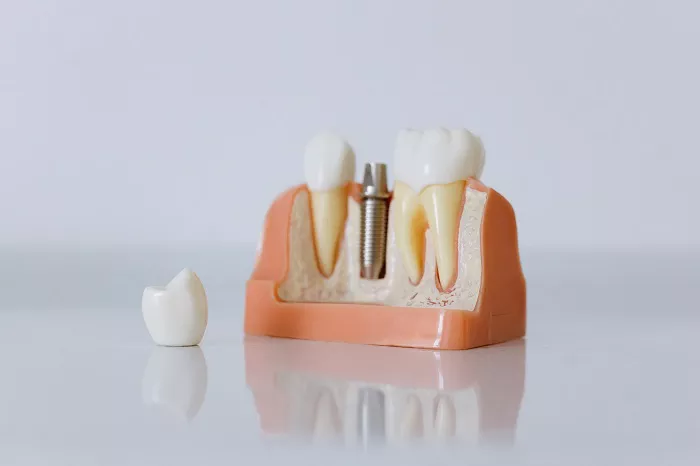Dental implants have become a popular and effective solution for replacing missing teeth. However, the cost of implants can be a significant financial burden. In the UK, many individuals rely on dental insurance to help manage their dental care expenses. But does dental insurance cover implants? Let’s explore this complex topic in detail.
The Basics of Dental Insurance in the UK
Types of Dental Insurance Plans: There are various dental insurance plans available in the UK. Some are basic plans that mainly cover routine check-ups, cleanings, and fillings. These are often more affordable and are designed to encourage preventive dental care. For example, a typical basic plan might include two annual check-ups, a set number of cleanings, and coverage for simple restorative work like small fillings.
Comprehensive Plans: On the other hand, there are comprehensive dental insurance plans. These plans usually offer a broader range of coverage. They may include coverage for more complex procedures such as root canals, crowns, and bridges. However, the premiums for these comprehensive plans are generally higher.
Exclusions and Limitations: Regardless of the type of plan, dental insurance in the UK typically has exclusions and limitations. Pre-existing conditions are often not covered. For instance, if a patient already has a missing tooth before taking out the insurance policy and then wants an implant for that tooth, the insurance is likely to deny coverage.
Additionally, there may be waiting periods before certain procedures are covered. This means that even if a plan does cover implants, the patient may have to wait a specific amount of time, such as 12 or 24 months, after enrolling in the policy before they can claim for an implant.
Coverage for Dental Implants
Rarely Full Coverage: In most cases, dental insurance in the UK does not provide full coverage for dental implants. Implants are considered a major dental procedure and are quite expensive. The cost of a single implant can range from £1,500 to £3,000 or more, depending on various factors such as the location and complexity of the case. Insurance companies usually only cover a portion of the cost, if at all.
Partial Coverage Scenarios: Some dental insurance policies may offer partial coverage for implants under certain circumstances. For example, if the tooth loss was due to an accident and the patient has an accidental damage clause in their insurance policy, the insurance might contribute towards the cost of the implant. However, this is not common and usually comes with a cap on the amount they will pay. It could be a fixed amount like £500 or a percentage of the total cost, such as 20%.
Policy Add-ons: There are also some insurance policies that offer add-ons or supplemental coverage for implants. These add-ons usually come at an extra cost. The patient can choose to purchase this additional coverage, which may increase the overall coverage for implants. But again, it is important to carefully read the terms and conditions as there may still be limitations and exclusions even with the add-on. For example, the add-on might only cover implants for specific teeth or under specific medical circumstances.
Factors Affecting Implant Coverage
Reason for Tooth Loss: As mentioned earlier, if the tooth loss was due to an accident, there may be a higher chance of some insurance coverage compared to tooth loss due to decay or gum disease. Insurance companies view accidental tooth loss differently and may be more willing to provide some financial assistance for implant replacement.
Dental Insurance Provider: Different insurance providers have different policies regarding implant coverage. Some providers are more generous in their coverage options, while others have very strict limitations. It is crucial for patients to research and compare different providers before choosing a dental insurance policy. For example, Provider A might offer 30% coverage for implants with a £1,000 cap, while Provider B might have no coverage for implants at all.
Policy Terms and Conditions: The specific terms and conditions of the dental insurance policy play a significant role. This includes details such as the waiting period, the maximum amount of coverage, and any exclusions related to implants.
Patients need to understand these terms thoroughly. For instance, a policy might state that implants are only covered if the patient has been a member of the insurance plan for at least two years and has had regular dental check-ups during that time.
What to Do If You Need an Implant and Have Insurance
Contact Your Insurance Provider: The first step is to contact your dental insurance provider. Explain your situation, including the reason for the tooth loss and your desire for an implant. Ask them about the specific coverage details of your policy. They can provide you with information on whether your policy covers implants, and if so, how much and under what conditions.
Get a Treatment Plan: Ask your dentist to provide a detailed treatment plan for the implant. This should include the cost breakdown, the type of implant to be used, and any additional procedures that may be required. You can then submit this treatment plan to your insurance provider to see if they will approve any coverage.
Consider Alternatives: If your insurance does not cover implants or the coverage is very limited, consider alternative treatment options. Dental bridges or dentures may be more affordable and could be partially covered by your insurance.Discuss these alternatives with your dentist to determine the best course of action for your oral health and financial situation.
Conclusion
In the UK, dental insurance coverage for implants is generally limited and complex. While some policies may offer partial coverage or have add-ons for implants, it is not common to have full coverage. Patients need to carefully consider their dental insurance options, understand the terms and conditions, and be prepared to explore alternative treatment methods if implants are not fully covered. It is also essential to maintain good oral health to reduce the risk of tooth loss and the need for costly implant procedures.

